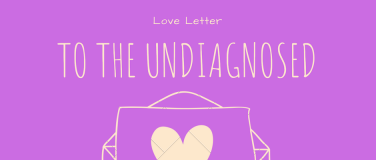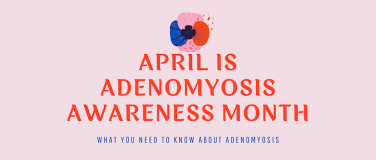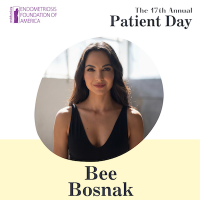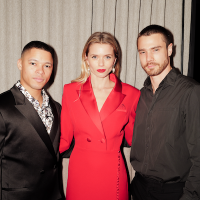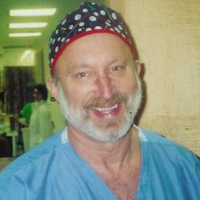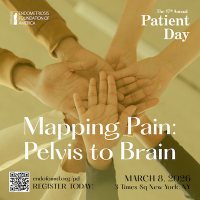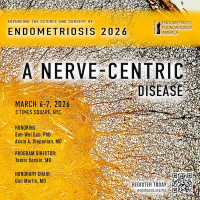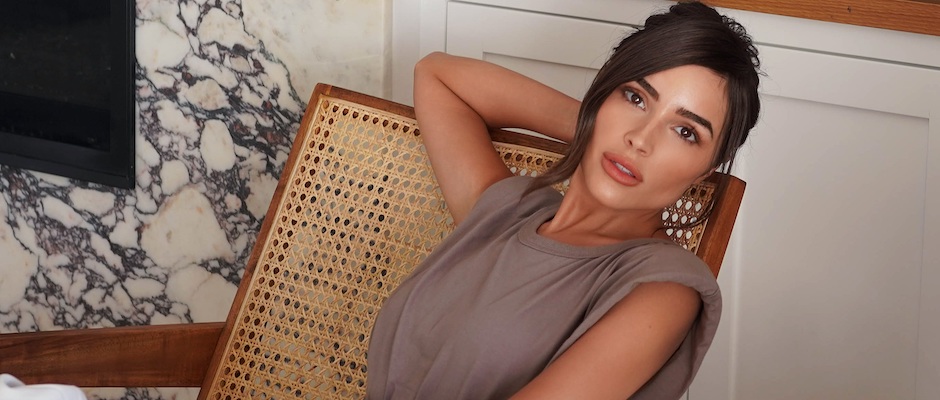
Olivia Culpo is a model, an actress, and a businesswoman who (pre-pandemic) is usually found jetting off to a new location to tackle her latest project. She’s also an ambassador for the Endometriosis Foundation of America. But a year ago, Culpo added a new and significant title to her list: endo warrior. Since receiving her diagnosis, Culpo has been using her platform to raise awareness about the disease. Now, Culpo reflects on her own endo journey and her advice for others experiencing a similar path.
Lauren Levine Corriher: Had you heard of endometriosis before your diagnosis?
Olivia Culpo: I had heard of endometriosis, but I didn’t realize that’s what I had. I’d gone to so many doctors and they had said that period pain was normal, which is something I know now isn’t true. One of the things I'm really passionate about, along with spreading awareness about endometriosis, is encouraging women to really advocate for their health and do their own research. You're not always going to be given the answers you need. It sometimes takes a lot of pushing.
LLC: Is there a misconception that you had about the disease before you learned more about it?
OC: I wasn’t aware of where it could affect women. I talked to Dr. Smitha Vilasagar [Olivia’s Charlotte-based surgeon] about how endometriosis can spread to all these different areas of your body, like your diaphragm, liver, bladder, and rectum. I also didn't realize that the stages of endometriosis aren’t necessarily parallel with your level of pain, it just depends on where the disease is located. It can be a silent thing that’s taking over someone’s life slowly, which is really scary.
LLC: What was that diagnosis process like for you?
OC: It took over two years for me. I’d seen tons of different doctors. I’d done ultrasounds. I’d been through blood work. I had one doctor tell me that I should just take ibuprofen twice a day, every day a week before my period, and then my bleeding would be lighter. I had thought that somehow I’d be able to cure myself as I got started on a holistic health journey, but that didn’t get me anywhere, unfortunately.
Because my endometriosis was progressive, it eventually became unbearable. You start planning your whole life around your period, and that’s just no way to live. It’s something that not only affects you, it also affects everyone you're with. It’s hard when people see you in pain. They don’t want you to be miserable.
LLC: What has your treatment journey been like?
OC: I had surgery and then I started with birth control, which I’d never tried before. I have an IUD and it’s helped me so much. A pain-free life is bliss. It’s the best decision I ever made. At this point, we’re monitoring and making sure that the surgery made everything better, which it did, though I’ve heard it is common to need repeat procedures. And then we can only hope and pray that someday there’s a cure for endo.
LLC: You’ve got a large social media following, which makes for a great platform for spreading awareness. But unfortunately, the Internet is also filled with trolls. Did this give you pause about sharing your story?
OC: Yeah, there are still certain things about my overall experience that I'm not super comfortable talking about. But that's on me. I understood what I signed up for when I took on the job that I have. To a certain degree, I’m in the public eye. And with that comes a lot of responsibility, but also a lot of opportunities. I have to understand that the gift I can give to people by spreading awareness and education is so much greater than the fear I have of being trolled.
It's just about getting more comfortable speaking and standing up for things that are not super comfortable, like period talk. We live in such a male-dominated society, which is probably why we don’t talk about it enough, but that’s changing. I think part of that narrative is really standing up for ourselves, especially when you know it's going to help other women.
LLC: Do you have tips for people who are looking to use their own platform to raise endo awareness?
OC: I would say be a support for someone. Be a resource. I have such an overwhelming amount of people reach out with questions because the disease does feel so isolating. Open up your Instagram, your Facebook, or your Twitter. Send out a tweet with #endometriosis. I’d be shocked if somebody were to do that and not get at least one person reaching out.
LLC: Speaking of resources, what made you want to get involved with EndoFound?
OC: I’ve always known about The Endometriosis Foundation of America (EndoFound) just from my own research on endometriosis. I realized that they’re doing a lot to continue to spread that awareness and that education, which I feel will eventually move us closer to finding a cure and will help so many women.
LLC: Endometriosis can deal with sensitive subjects, such as sex, bathroom habits, etc. Because of this, embarrassment may prevent someone from seeking the help that they need. Do you have tips for getting comfortable as you discuss these issues with your providers?
OC: First of all, I get it. But I’d say read up on other women who had to advocate for themselves, which can inspire you to do the same thing. Look at other women who have been in a similar position, think of what they did to get the help that they needed, and try to channel that. If that person did it, so can you.
LLC: Do you have tips for teen girls who are struggling with period pain and don’t know what to do?
OC: Definitely find a trusted doctor. Go to an expert, don't think that every doctor is going to have the best advice, because not every doctor is a specialist. I also think I could have avoided a lot of pain if I had started birth control earlier. I would say monitor your symptoms and make sure that you're exploring every single option because you don't want it to grow and get out of hand.
LLC: Do you have tips for staying physically and mentally strong on days when the disease is wearing on you?
OC: You need to understand what helps you manage your endometriosis. I have a really weird laundry list of things that would help me, like chocolate. Baths are really helpful. I would take a lot of Midol, which seemed to help my cramps. I also realized that managing stress was really important. Sometimes I would have an 18-hour shoot day and mentally having to prepare myself for a long day was very stressful. Looking back on it, I’d tell someone, “Hey, you can't do that day. You have to cancel.”
Going back to this being more of a man's world, there needs to be some level of understanding, maybe even a menstrual leave. There are women who don't have the opportunity to get surgery, and they’re having to really suffer because they have to work when they're in agonizing menstrual pain.
LLC: Do you have tips for loved ones of people with endometriosis on how they can provide more effective support?
OC: I think women feel pressure to do a lot of different things. Personally, I struggle with feeling like I have to do so much and meet some sort of expectation. Maybe I’m a bit of an overachiever.
But some days I was in so much pain that I really couldn't do anything. And having the support of my loved ones to say, “It's okay that you're not feeling well. You’re not going to do anything today. But we need to figure out what's wrong with you” took such a weight off my shoulders because I knew what it was like to be around people that didn't believe that I was in pain. So just providing that validation and comfort.



